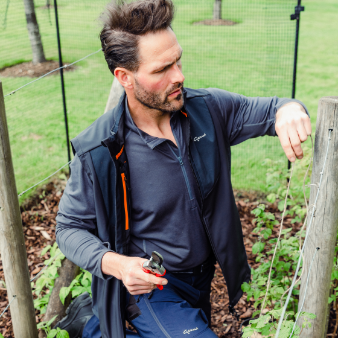Just like ourselves in the Genus garden, we know many gardeners who spend a lot of time choosing flowers they hope are going to perform really well in the conditions our gardens present them with. Whether a garden is dry and sunny, or damp and shady, on acid peat or on more neutral loams, there is always a plant that will thrive there. But the issue for most gardeners is knowing more about the origin of the plants they want to grow, and understanding whether those species are the most appropriate for the places they want to put them.
This is where knowing more about wildflowers is so important. All cultivated plants originated in the wild, and they consequently hold within them the genes that equip them do well in specific situations. Wild flowers don’t only hold the key to a gardener’s understanding of cultivated plants. They are also plants that can cope with really tough conditions, and they present a range of different solutions when we think about problem planting areas, or issues related to current environmental concerns such as climate change or the loss of pollinators. If you are looking for species that can resist drought, plants that do well on poor soils with very low levels of nutrients, and the kinds of flowers that are best able to support bees and other native pollinators or wildlife then native wild flowers are where you should find your inspiration.
After a couple of decades when we have treated wild flowers as weeds and tried to eradicate them from our coiffured garden spaces, we are at last recognising their value and beginning to include native wild flowers in our planting plans and schemes. The Easter Sunday broadcast of Countryfile, included an article that explained the importance of wild flowers and showed how wildflower seeds are grown. Kew Garden’s Grow Wild initiative is encouraging people, new gardeners and old, to plant wild flower seeds as part of a UK wide push to increase the numbers of people sharing the experience and benefits of native wildflowers. If you have never thought about it before, consider the lilies of the field, and get your wild flower seeds into your hands and into a space within your garden soil!





